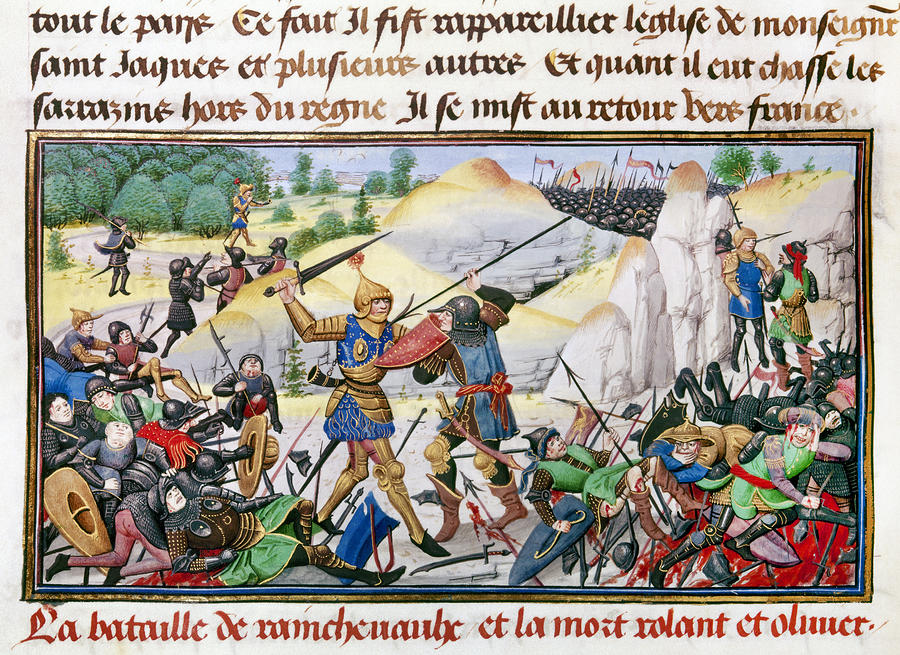The Song of Roland is filled with suspense, adventure, and excitement. No matter when the story is written, the Iliad by Homer and all the way to the modern gladitorial story of the Hunger Games, dramatic irony works fluently and flawlessly throughout literary history.
Dramatic irony is when the audience is well aware of the proceeding events in the story, or understands the context of the events, while the character is clueless. Even though each member of the audience is empowered with this knowledge, and in no way is vulnerable to being harmed by any events in the story, the audience still experiences a mimesis of the emotions the protagonist experiences in the story.
This mysterious literary technique is quite apparent in the Song of Roland, certainly in the battle sequences that appear in Laisses 91-130. In this section, we feel the awestruck fear Olivier experiences at the sight of the Paynim's forces. We experience the suspense in the battle as the French, as valiant as they are, cannot withstand the quantity of their enemies. And finally, we experience a sense of relief and loss as the Oliphant is sound for a retreat. Through all of this, we have been told by the author prior to these events, that Roland will lead the Franks in victory over the Paynims. Yet, we still experience the character's emotions as if we were in their own place.

A good description of dramatic irony, Luke, and how it works in the text. Yes, the tension created by what we as an audience know and what the character does not increases the pity we feel for the character. In the Song of Roland, Roland seems to know his fate is sealed as he seems aware of the treachery of Ganelon even before the "paynim" army reveals itself. As the army approaches and he is aware of the sheer force of its number, his extreme valor (or "overweeing pride") in not blowing the horn for help and facing the enemy head on as if they were equal in number adds to the admiration we feel for him, coupled with the pity we feel as he inevitably meets his doom.
ReplyDelete